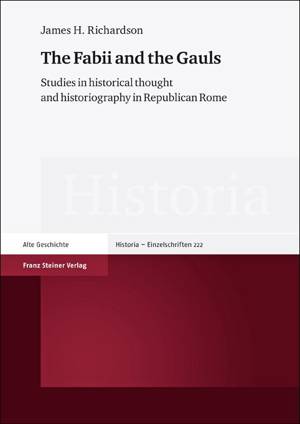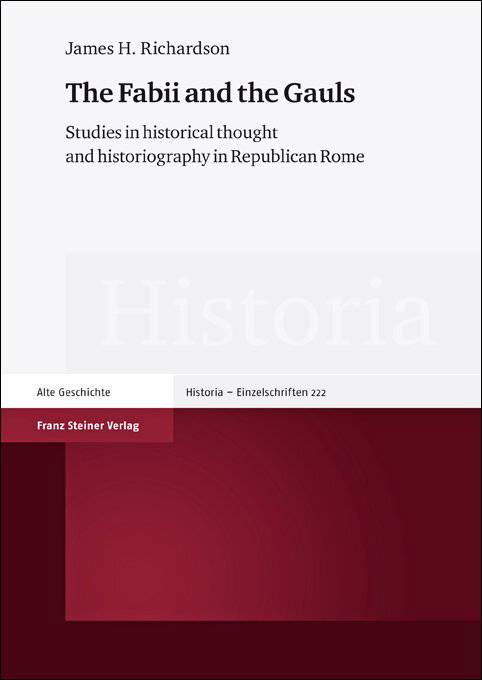
- Afhalen na 1 uur in een winkel met voorraad
- Gratis thuislevering in België vanaf € 30
- Ruim aanbod met 7 miljoen producten
- Afhalen na 1 uur in een winkel met voorraad
- Gratis thuislevering in België vanaf € 30
- Ruim aanbod met 7 miljoen producten
Zoeken
The Fabii and the Gauls
Studies in Historical Thought and Historiography in Republican Rome
James H Richardson
€ 66,45
+ 132 punten
Omschrijving
This book explores how Roman ideas about human behaviour and historiography affected the ways in which the Romans wrote about their past. The first of the book's three chapters considers Roman views concerning human behaviour and the impact that these had on the traditions of Rome's past. The second looks at the presentation of the gens Fabia in the literary evidence and at the ways individual Fabii were said to have behaved. The final chapter examines the evidence for the Gallic sack of Rome and considers the influence that Greek historical traditions had on Rome's own traditions. Numerous members of the gens Fabia were said to have acted in a similar manner and even to have done the same things, while the tradition of the Gallic sack bears a striking resemblance to the tradition of the Persian sack of Athens. Scholarship usually maintains that individual historians such as Fabius Pictor were responsible for devising these sorts of parallels, and that they did so for their own literary and political purposes. The principal argument put forward here is that they are the inevitable product of Roman historical thought, and so need not be attributed to any one historian.
Specificaties
Betrokkenen
- Auteur(s):
- Uitgeverij:
Inhoud
- Aantal bladzijden:
- 186
- Taal:
- Engels
- Reeks:
- Reeksnummer:
- nr. 222
Eigenschappen
- Productcode (EAN):
- 9783515100403
- Verschijningsdatum:
- 8/03/2012
- Uitvoering:
- Hardcover
- Formaat:
- Ongenaaid / garenloos gebonden
- Afmetingen:
- 175 mm x 244 mm
- Gewicht:
- 439 g

Alleen bij Standaard Boekhandel
+ 132 punten op je klantenkaart van Standaard Boekhandel
Beoordelingen
We publiceren alleen reviews die voldoen aan de voorwaarden voor reviews. Bekijk onze voorwaarden voor reviews.











